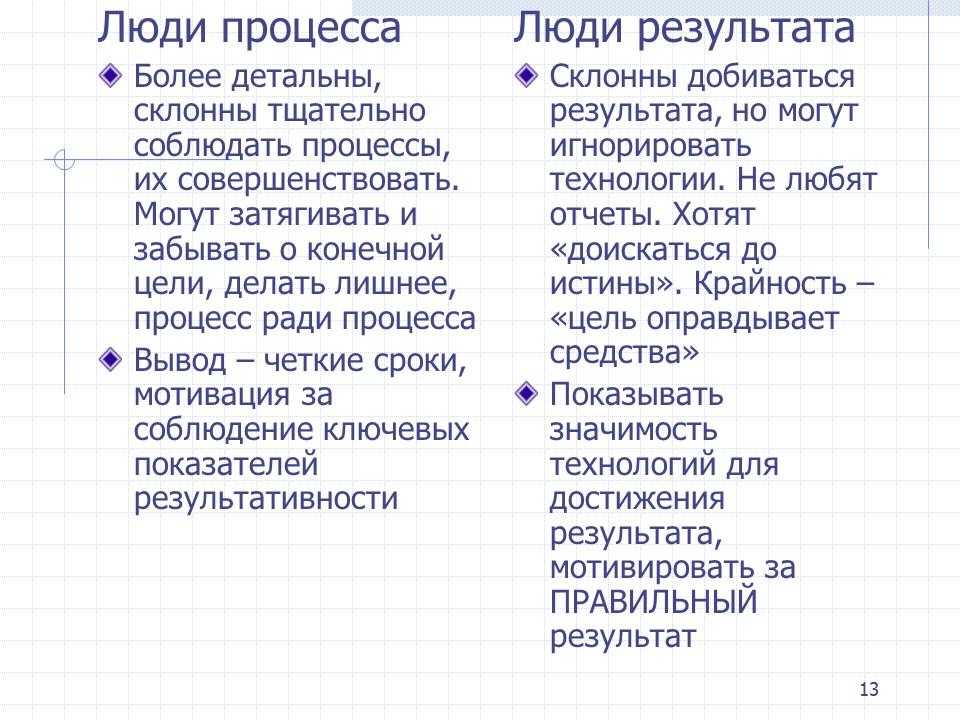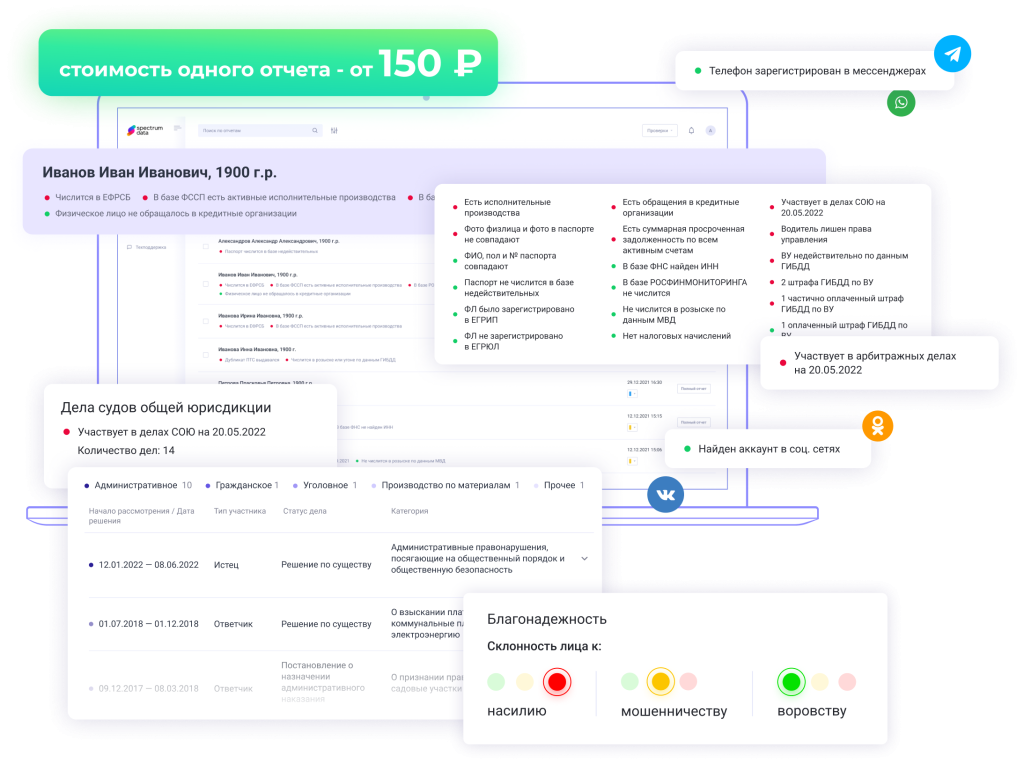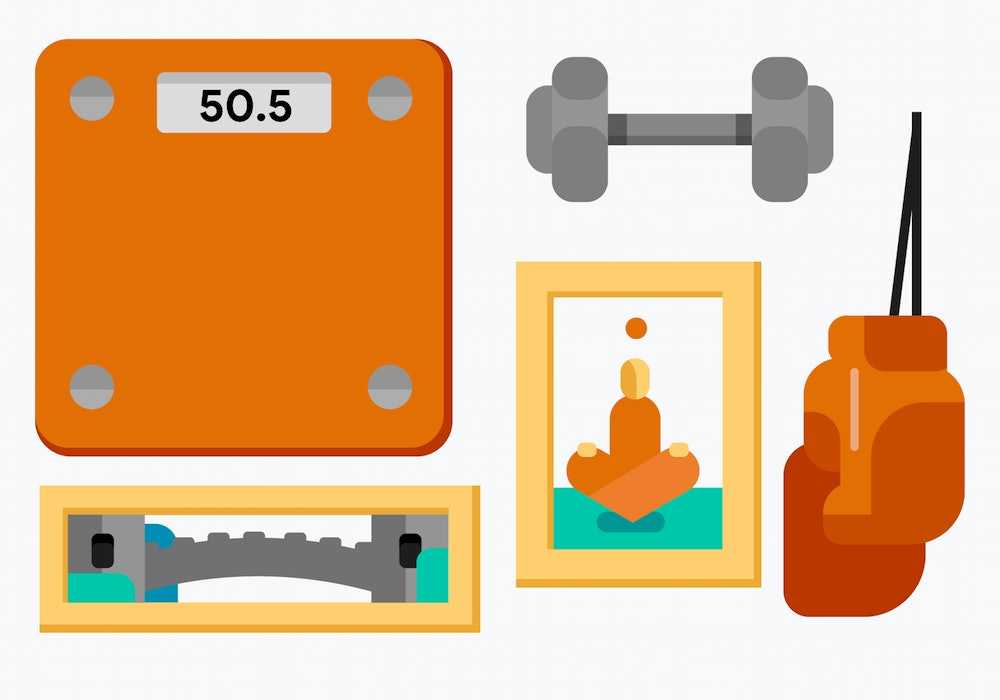Правила работы с результатами оценки персонала
После того, как итоги оценки на руках, придется принимать какие-то управленческие решения. Но для начала необходимо:
обсудить с работником итоги оценки.
Делать это стоит максимально бережно – без агрессии, в формате диалога, один на один. Это поможет добиться в будущем более эффективной работы.
«Мы всегда даем обратную связь человеку. Индивидуально встречаемся с ним, говорим, откуда взялись оценки, делаем все, чтобы он согласился с ними
Это важно. Потому что если сотрудник принял оценки, то у него появляется мотивация для развития», – делится Андрей Фадин.
если речь идет о количественных методах оценки, то результаты обсуждают вместе с коллективом.
Такой подход позволяет стимулировать команду к достижению результатов, каждый сотрудник видит, что от него зависит, а что нет.
Understanding the Assessment Process
It would take several practise sessions before you become familiar with the questions listed above. As you practice answering those questions, keep in mind that employers and recruiters already have specific strengths they’re looking for.
The questions that they will ask will relate to one or more of these particular strengths. They will also be fishing for certain behaviors, values, skills, and attributes. These are the things that have been deemed necessary for the applicant to become successful in the role that they will be playing in the future. It makes sense to demonstrate that you fit well into these roles via your strengths, skills, and other attributes.
Here are some of the qualities that employers will be looking for:
- Persistence
- Resilience
- Ability to pick up information quickly
- The ability to learn a subject or skill fast
- The ability to inspire trust in clients
- Getting the confidence of colleagues
- Relationship management
There are other traits that employers will be looking for and they will not always be the same set. It will all depend on the job or role that needs to be filled. Some questions will be process-oriented, some are people-centred, and others will focus on other job factors. Again, researching about the job and the company will help you answer strength-based interview questions effectively.
Keep in mind that employers will also look at your engagement level and your capabilities. Engagement level refers to how energized you are while making use of your strengths. It also measures how drained you are after focusing on your tasks and doing certain behaviours. Capability refers to how well you perform on the job.
Инструкция по управлению людьми процесса/результата

У людей процесса и результата есть свои сильные и слабые стороны. Сильные стороны можно использовать, а слабые – корректировать.
В чем эти сильные и слабые стороны заключаются?
Люди процесса детальны, тщательны: любят соблюдать порядок и шлифовать процесс. Могут затягивать время и забывать о конечной цели.
Как корректировать? Ставить четкие сроки, мотивировать за соблюдение ключевых показателей результативности.
Люди результата склонны добиваться результата, но могут игнорировать технологии. Не любят отчеты: дело-то сделано, зачем об этом писать. Хотят доискаться до истины. Не просто «Как это делать?», а «Зачем и для чего?». Крайностью может быть: «Цель оправдывает средства».
Чтобы сохранить достоинства людей результата и добиться желаемого, нам нужно:
-
Показывать значимость технологий для достижения результата и мотивировать за правильный результат. Если соблюдаешь технологии, добьешься более качественного результата.
-
И второе – мотивировать за правильный результат.
Как можно заранее оговорить с кандидатом, какой результат правильный:
-
Например, мы взяли на работу кандидата, не проверив досконально его метапрограммы, в результате он не проходит испытательный срок. Это неправильный результат.
-
Второй вариант: мы наняли специалиста, проверили его метапрограммы и составили инструкцию по управлению. В итоге, он проходит испытательный срок, успешно развивается и достигает результата. Это результат правильный.
Я рекомендую в каждом подразделении организации прописать, что есть правильный результат, и что – неправильный.
Ok So How Should I Prepare For My Strengths Based Interview?
Although some claim that strengths based job interviews require less prep than other formats, it is best for candidates to avoid complacency and still take the time to steel themselves for what they will face.
Thoroughly researching the organisation and the role that is up for grabs will be essential no matter the type of interview that is on the table. Employers will want candidates to demonstrate that they are interested and engaged with the work that they hope to do, and the industry at large.
The questions themselves will be many and varied, with interviewers likely to try and squeeze as many as possible into the allotted time. This means being somewhat concise with answers is important for anyone who wants to show the breadth of their personality and interests in full.
Why Recruiters Tend to Employ Strength-Based Interviews
Recruiters who go for this approach will want to know if a candidate will enjoy the work they’re signing up for. They want to know if you will be your genuine self when you work with the team.
It makes sense. It wouldn’t be wise to hire someone who will be uncomfortable with the company’s culture. If you won’t enjoy life at work, then there is no reason to hire you. It will be a waste of time and resources to hire someone who will just leave a few months later.
Preparing for Strength-Based Interviews
Preparing for a strength-based interview will require a bit more time and effort. A lot of employers and interviewers believe that there is no way to prepare for interviews of this type.
We agree that there is no way to anticipate every question. You just can’t rehearse your responses and prepare for all scenarios. Nevertheless, you can plan certain responses that can best fit a variety of scenarios. You can have a set of strengths reviewed and rehearsed well enough so that you can highlight them to show you’re a good fit for the job.
The interviewer will ask one question after another, sometimes in rapid succession. This is done to prevent applicants from using memorized responses to interview questions.
- Don’t memorize your responses: What you’re looking to do during your preparation is not to prepare a memorized response. You need to prepare natural responses that come to you quite instinctively. This will take a lot of practice and a good understanding of your strengths.
- Get an overall idea about strength-based questions: Having an overall idea about the type of questions that will be asked during a strength-based interview will help. With enough practice, you will become accustomed to coming up with quick responses on the fly.
- Research the company and the job: Doing your due diligence and researching about the company will also help a lot during the interview. You should also understand the details about the job and role you’re applying for.
- Match job requirements with your strengths: Job ads may include certain qualities that an employer is looking for. Make a list of your strengths and determine ways how they could benefit the company. Understand and identify the ways your strengths can help you succeed.
- A well-rounded approach: Identify strengths from your academic background and practice recalling them. You should also do the same when you identify strengths in other fields. Look into your social achievements, volunteer work, hobbies, and the subjects that you’re interested in.
Методы отбора соискателей
Рассмотрим основные методы отбора персонала:
Сбор данных о кандидатах. Например, есть 10 потенциальных сотрудников. Начать отбор можно со сбора данных о них. Для начала нужно проверить достоверность представленных документов и личных данных. Также можно поискать личные странички претендентов в соцсетях. Например, один постит фотографии с семьей, рассказывает о своей работе и занятиях йогой, а у другого на странице сплошные фото «тусовок» с алкоголем. Кого бы вы выбрали? Причем на собеседовании они могут произвести одинаково положительное впечатление.
Тестирование. Тесты бывают на выявление профессиональных и личных качеств кандидатов
Важно, чтобы их проводили психологи, так как нужно правильно интерпретировать результаты. Если нет возможности пригласить специалиста, можно использовать стандартные тесты
Как правило, в них за каждый ответ начисляется балл, потом их суммируют, получая результат.
Рекомендации с прошлых мест работы. Этот метод сложно назвать объективным, так как нельзя утверждать, что письмо написано честно. Тем не менее, если собеседник предъявляет такое письмо, – это плюс в его сторону. Но во время оценки кандидатов не полагайтесь только на рекомендации.
Традиционное интервью (собеседование). Основной и наиболее распространенный метод оценки соискателей. Тут многое зависит от интервьюера: сможет ли он увидеть потенциал в застенчивом парне или же его очарует обаяние самоуверенного бездельника.
Интервью по компетенциям. Благодаря ему можно оценить, как действовал кандидат в разных ситуациях в прошлом, спрогнозировав, как будет работать в будущем.
Ассессмент-центр. Один из наиболее дорогих, но эффективных способов оценки профессиональных и личных качеств. Подходит для отбора персонала высшего звена.
Brainteaser-интервью. Соискателю задают каверзные вопросы, чтобы оценить, насколько нестандартно мыслит кандидат. Это вопросы из разряда: «Сколько учителей в мире?», «Как можно использовать кирпич? Назовите 10 вариантов». Если закончится фантазия, можно обратиться к сборнику задач и головоломок. Задача опрашиваемого – ответить как можно креативнее.
Стресс-интервью. Еще один вид оценки, который покажет, как человек ведет себя в стрессовых ситуациях. Здесь также можно задавать каверзные вопросы по типу «расскажите о бывшем начальнике» или можно затронуть личное «сколько у вас было партнеров». Соискателю не нужно честно отвечать, ему важно показать, как он выкручивается из неловких или стрессовых ситуаций. Во время интервью можно перебивать собеседника, задавать дополнительные и не связанные между собой вопросы.
Настольные игры. В них проявляются компетенции кандидатов, которые можно проследить и оценить. Например, логику и нестандартность мышления, внимательность, умение работать самостоятельно или в команде.
Графология. Спорный способ оценки, однако многие его используют в качестве дополнения. Это оценка личности кандидата по почерку. Для большей точности попросите у кандидата несколько рукописных текстов, написанных в разное время, так как от текущего настроения может меняться почерк.
Мы рассмотрели способы оценки кандидатов. Не обязательно использовать все сразу. Достаточно будет 1–2. О самых популярных и эффективных мы расскажем ниже.
Как работает джоб-мэтчинг?
Как корабль назовешь, так он и поплывет. Сорсеры в сфере рекрутинга могут многое рассказать о том, как правильный запрос, например в Google, делает поиск намного эффективнее. Если мы говорим о мэтчинге, то для рекрутера правильный запрос начинается с анализа вакансии. Здорово, когда в компании есть ролевые модели, т.е. высокоэффективные сотрудники, которые служат примером. Не только они, конечно же, необходимо привлекать к анализу менеджеров. Помимо этого, в компании обычно накоплен рекрутинговый опыт, на который грех не опираться, особенно если практикуется обмен знаниями. Во время встреч заинтересованных сторон можно задавать следующие вопросы: «Какие задачи часто выполняются на должности?», «Какие самые важные задачи выполняются только в рамках должности?», «Какие навыки необходимы, чтобы быстро адаптироваться на должности?» и др. Ответив на все вопросы, можно заняться выбором инструментов для оценки необходимых скилов. В процессе мэтчинга, как уже написал ранее, будет сгенерирован балл, который будет служить ориентиром. Высока вероятность, что кандидаты не будут до него дотягивать — и это нормально. Кстати, прежде чем работать с кандидатами, можно протестировать технологию на сотрудниках компании. Следует также помнить, что всегда можно вносить определенные коррективы, оценивая кандидатов по итогам испытательного срока, например, через 30 дней.

In summary
Organisations want to know how you hold these values to yourself, in the workplace and to the public. Being able to ask value based questions helps employers understand what potential employees have to offer in alignment with the long term vision and strategy of the business.
The Thomas talent assessment platform can aid your organisation in the development of value based questions and analyse results to help make hiring decisions easier. Specifically, the interview guide is dynamically generated for each individual that takes our assessments, and gives you suggested questions to ask in the interviews based on the traits and aptitudes that you define as most important for the role. Using these questions in an interview, you can really get to the heart of each interviewee and understand more about their personality and behaviour than you would from a standard interview.
If you would like to find out more, please speak to one of our team.
Как оценивать благонадежность кандидатов и сотрудников
Важной частью оценки новичков и действующих сотрудников становится проверка на благонадежность. Это позволяет обезопасить компанию от банкротов, людей с судимостями, большими долгами и т.д. . Проверить уровень благонадежности соискателей и сотрудников можно быстро и эффективно с помощью сервиса SpectrumData.
Проверить уровень благонадежности соискателей и сотрудников можно быстро и эффективно с помощью сервиса SpectrumData.
Это займет всего несколько минут, вы тут же узнаете о кандидате или работнике:
- действителен ли его паспорт;
- какой он имеет кредитный рейтинг;
- есть ли в копилке исполнительные производства;
- не задолжал ли он налоговой, ГИБДД или алименты собственным детям и многое другое.

Сервис моментальной проверки может оценить благонадежность сразу десятков сотрудников – здесь есть возможность пакетной проверки. Вся информация собирается из официальных баз МВД, ФСИН, судебных приставов, то есть абсолютно достоверна.
Conclusion – the strengths of strength-based interviewing
Hopefully now you’ve got a slightly better idea of the benefits and pitfalls that some of the more unconventional methods of interview questioning can bring to you. If in doubt, just remember the mantra that anything you ask needs to be relatable to the job role in question in some way. The strength-based approach that we advocate here isn’t the only method available, but it is one that is proven to perform – with many companies already having adopted it. It’s a method that aims to tap into a style of communication that we’re probably all familiar with outside of the workplace, but that is all too often lacking in the modern corporate environment.
Как организовать удаленную работу в 1С
Возможность удаленной работы в 1С базах появилась довольно давно. Но, пожалуй, самый пик потребности в ней был в связи с пандемией коронавируса и после нее. Если раньше работодатели, скрепя сердце, отпускали сотрудников на удаленку и требовали работать преимущественно в офисе, то на сегодняшний день – это обычная практика и образовавшийся тренд. Скоро наличие защищенного удаленного соединения перерастет в разряд обязательных требований к организации работы в базах 1С.
Фирма 1С, идя в ногу со временем, разработала варианты на любой вкус и кошелек. Давайте разбираться – что же подойдет именно Вам и какой вариант выбрать? Какие есть возможности и сервисы под конкретные задачи предприятия?
3
Mastering Strength-Based Interview Questions

Now that you understand the significance of strength-based interviews, let’s explore some strategies for mastering strength-based interview questions. These questions are designed to gauge your strengths, preferences, and values. Here are some tips to help you prepare:
Strategies for Nailing Strength-Based Interview Questions
Reflect on your strengths: Before your interview, take the time to reflect on your strengths and the areas where you excel. Consider your past experiences and achievements to identify recurring patterns and themes. This self-awareness will enable you to articulate your strengths confidently during the interview.
For example, if you’re applying for a leadership position, think about times when you successfully led a team or project. Reflect on the specific skills and qualities that allowed you to excel in those situations. This will help you communicate your strengths effectively to the interviewer.
Research the job role: Familiarize yourself with the key competencies and requirements of the role you’re applying for. This will help you align your strengths with the specific needs of the position and demonstrate how you can contribute to the company’s success.
Take the time to thoroughly read the job description and understand the core responsibilities. Identify the skills and qualities that are essential for the role and think about how your strengths align with them. This will allow you to tailor your answers to showcase your suitability for the position.
Prepare real-life examples: As with any interview, it’s essential to back up your claims with real-life examples. Think of situations where you’ve utilized your strengths to overcome challenges or achieve significant results. These specific examples will make your answers more compelling and demonstrate your ability to apply your strengths in a professional context.
For instance, if one of your strengths is problem-solving, think of a specific problem you encountered in a previous role and how you used your problem-solving skills to find a solution. Describe the steps you took, the challenges you faced, and the successful outcome. This will showcase your ability to apply your strengths in practical situations.
Preparing for Success in Strength-Based Interviews

In addition to mastering the interview questions, it’s important to prepare holistically for strength-based interviews to avoid common job interview mistakes. Here are some additional considerations:
- Practice self-reflection: Take the time to understand your motivations, values, and career aspirations. This self-reflection will help you articulate why you’re genuinely passionate about the role and company you’re applying to. Consider what drives you and what you value in a work environment. Reflect on how the role aligns with your long-term career goals and why it excites you. This will allow you to convey your genuine enthusiasm to the interviewer and demonstrate your commitment to the position.
- Conduct company research: Thoroughly research the company’s values, mission, and culture. This will allow you to demonstrate your alignment with the organization’s ethos and articulate how your strengths complement their objectives. Explore the company’s website, social media presence, and any recent news or press releases. Pay attention to their mission statement, core values, and any initiatives they’re involved in. This knowledge will enable you to speak confidently about how your strengths align with the company’s goals and how you can contribute to their success.
- Seek feedback and learn from experience: If you have the opportunity to participate in mock interviews or receive feedback on your interview performance, take advantage of it. Learning from each experience will refine your interview skills and boost your confidence for future opportunities. Ask for feedback from mentors, career counselors, or trusted colleagues who have experience with interviews. Take note of their suggestions and areas for improvement. By continuously seeking feedback and learning from your experiences, you can enhance your interview performance and increase your chances of success.
Different Ways of Asking the Strengths Question
Because it’s a broad and open-ended question, employers will often word it in different ways.
Don’t be caught out – if they’re giving you an open opportunity to talk about your strengths, then it’s this question.
Learn how to recognise it and how to apply your planning, and you’ll never be thrown off.
Here are some of the question’s more common guises:
- «How would you apply your key strengths to this position?»
- «Why should we hire you?»
- «What makes you the ideal candidate for this job?»
- «What makes you a good fit for the position?»
- «What do you feel sets you apart from the competition?»
- «What would your colleagues say you bring to a team?»
- «What accomplishment are you most proud of?»
- «Which traits do you have that make you most suitable for the role?»
Each of these phrasings (and many more) are asking the same essential question: What are you good at and why would we want those skills in our company?
Of course, you don’t want to answer all of these questions in the same way and come across as robotic. Take note of how the question was put to you and tailor your answer appropriately.
For instance, if the question is about your proudest achievement, start by describing an example you’re happy with and then discuss the strengths that surround that example.
Being able to adapt your answer to whatever question is thrown at you will not only put across your key strengths in a more engaging way, but will also demonstrate your communication abilities.
Be prepared for follow-up questions to be asked.
Most often, you’ll be asked something like: «How have you used the strengths you’ve just mentioned in your previous role?»
This is why it’s important to prepare thoroughly and broadly. You might not get around to mentioning everything in your first answer, but the follow-up should draw on anything else.

Методы оценки эффективности персонала
- «Что я могу, какие у меня есть таланты и способности?».
- «Что у меня есть? Чем я могу воспользоваться?».
- «Каким человеком я являюсь? Кем себя вижу? Каким хочу быть?».
- «Какой жизнью я хочу жить? Чего хочу достичь?».
На уровне «D» должность может опытом компенсировать нехватку образования
Это важно! Должности на этом уровне имеют очень прикладные, но широкие знания. Но важно не только знать, но и оперировать
Должность оперирует широкими процедурами. На этом уровне идет компенсация опытом. Как правило, — это знания специалистов-универсалов (обладающих знаниями в различных прикладных областях).
Оценка должности критерий G Седьмой уровень
- Будьте самим собой и не обманывайте. Самое страшное, что с вами может случиться, – это работа, которая вам не подходит, и среда, в которой вам придется постоянно притворяться.
- Готовиться заранее можно и нужно. Это всегда чувствуется на интервью, и это всегда большой плюс для кандидата. В первую очередь это говорит об ответственном подходе к делу, в таком случае и к задачам, вероятно, человек будет подходить аналогично.
- Проанализировать себя. Вспомните свои сильные стороны и свои области для развития – мы часто о них спрашиваем и ждем честного диалога с кандидатом. «Моя слабая сторона в том, что я трудоголик и в связи с этим страдает моя личная жизнь» – это совсем не то, что от вас хотят услышать. Как правило, компания хочет понять, чем она может быть полезна человеку – что он хочет развить в себе на конкретной позиции. Мы не случайно называем слабые стороны областями для развития, так как ждем от кандидатов, что они действительно готовы работать над собой.
- Заранее сформулируйте ответы на некоторые вопросы. Они должны стать итогом предыдущего пункта про самоанализ. В частности, это такие вопросы, как: «Почему я хочу получить эту работу?», «Что компания сможет мне дать?», «Что мне предстоит освоить в первые недели-месяцы?», «В чем я не уверен?», «Где я уже добивался результата?», «Где я не добился результата? Как я исправил это?».
Помните , что тестовое задание, которое требует более чем 1 часа на выполнение и дополнительное время для ознакомления с тонкостями работы, а также ставит кандидата в уязвимое положение насчет его авторских прав (например, при запросе создать визуальное сопровождение рекламной кампании) должно быть оплачиваемым.
Key benefits of asking value based interview questions
Value based interview questions have clear and defined purposes as previously highlighted. Understanding the ‘how’ and ‘why’ an applicant makes various choices is a critical part of taking them on. By doing so, you are gaining insight into their values and behaviours.
Answering value-based interview questions requires an understanding of a company’s culture and the personal values your prospective employer accepts or rejects. It’s important to understand the values companies often search for in their candidates.
Some of the other associated benefits of asking value based interview questions include;
Ensure candidates are aligned with the business’ values
Candidates should always be considered as brand ambassadors regardless of whether you hire them or not. Their experience during the interview stage is a top priority and ensuring that you are hiring the top people who embrace your values and who believe in them is critical.
Another way to look at it is that you are creating a great candidate experience and allow candidates to truly realise that you don’t just tell what people the values are, you are making them experience it through living and breathing them.
Ensure candidates have the right values and attitude for your team and work environment
As a business, you want to have the kind of workforce which has some coherent reflection of staff between one another, however, you also don’t want to have a workforce of clones.
Value based interview questions get to provide an overall insight into a person’s values and how these align with your business, your colleagues and your goals.
Better team cohesion
By having candidates who reflect the same or similar values, you are going to develop greater team cohesion and this allows you to maximise your organisational efforts to reach your goals.
More holistic view of a candidate beyond their capabilities/technical competencies
One of the reasons why you would opt to do a values based interview is so that you can get a wider view of a candidate that sits outside of their capabilities/technical competencies. It is not a skills assessment. The goal of the interview is to determine whether candidates can positively contribute to the organisation’s core values. This is just as important as determining if they have the skill and will to perform the duties of the role.

